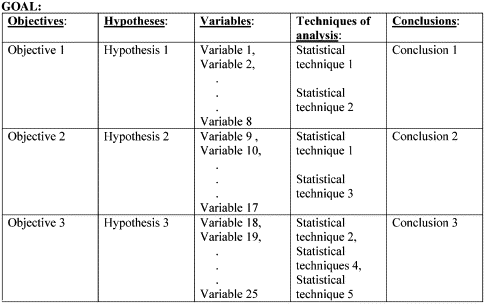What is an Explanatory Essay?
An explanatory essay is a type of writing that explains or clarifies a certain topic. This is distinct from other forms of writing such as persuasive, narrative, and expository essays. While these other types of essays often revolve around making a certain argument, an explanatory essay is meant to explain a topic to readers in a concise and straightforward manner.
At its core, an explanatory essay is all about breaking down complex topics into more manageable and digestible chunks. Rather than trying to persuade readers to agree with a certain point, the goal of this form of writing is to impart knowledge on the specified topic. It typically follows the fundamental structure of an introduction, body paragraphs and conclusion.
The body of the essay is where the majority of the information is conveyed. Here, the writer must organize their thoughts and ideas into clear, concise points that can be easily understood by the reader. Additionally, the writer should use simple language to ensure that their points are easily followed by all audiences.
Explanatory essays differ from other forms of writing in that they do not require the author to take a specific stance on the subject. Rather, they are meant to simply provide information and educate the reader on the topic at hand. By presenting facts and data in an easily digestible format, the writer can help the audience gain a better understanding of the subject.
How to Choose a Topic
When it comes to writing an explanatory essay, the most important decision you will make is choosing your topic. Selecting the right topic can be crucial to the success of your essay as it should challenge you while also providing value to the reader. Here are some tips to help you choose the perfect topic.
Consider Your Audience
Take some time to think about who your readers will be and what they might be expecting from your essay. This will help narrow down the subject matter and allow you to focus on topics that your audience will find interesting and informative.
Ask Yourself Questions
Before you settle on a topic, consider the type of questions you can ask related to it. If the questions you come up with don’t have clear answers or invite further exploration, then it likely isn’t the right topic for you. Aim to select a topic that offers plenty of food for thought.
Narrow Down Your Choices
Once you have a few topics in mind, take some time to research each one and consider the amount of available materials. If there isn’t enough material to draw upon it might not be the best choice. Additionally, make sure your topic is neither too broad nor too narrow. Aim to strike a balance between the two.
Pick the Right Topic
Choosing the right topic is an important part of writing an explanatory essay. Spend some time considering your audience, asking yourself questions related to potential topics and doing research to narrow down your list of choices. Once you’ve done all this, you should have the perfect topic to write about.
Researching the Topic
Conducting research for an explanatory essay is a key step in the writing process. Research helps you to accurately and effectively support your argument, providing evidence and authority to back up your claims. To research effectively, follow these steps:
- Decide on your topic. Be sure that it’s specific and can be explored in depth.
- Gather resources. Use both online and offline sources such as books, articles, and interviews. Utilize reliable sources such as government websites and published materials.
- Organize your research. Utilize a spreadsheet or other visual tool to keep track of all the relevant information for your essay. This will help you better understand the material and quickly locate the information you need.
- Take notes. As you are researching and gathering information, take notes on the significant points of the material. It is important to stay organized and focused on the most important points so that you don’t get distracted while writing your essay.
- Cross-check sources. Be sure to double check your sources and make sure that the information you are citing is accurate. Don’t forget to cite any sources you use in the essay.
Research is an important step when writing an explanatory essay. By researching your topic ahead of time, you can ensure that you have enough information to accurately and effectively support your argument. Taking the time to properly research and organize your material will go a long way in helping you write a successful essay.
Other Topics to Read:
Constructing an Outline
Constructing an outline for an explanatory essay is an important step to ensure that the essay is organized and structured. An outline provides a starting point and framework for writing, while allowing you to keep track of the main points and arguments you wish to make in the essay. It also helps you set the tone of the essay and focus on the topic.
Writing an outline can seem daunting but it doesn’t have to be. To begin, think about the overall structure of the essay and the topics or ideas you would like to include in each section. From there, start to break those topics down into smaller points. Once you have outlined the main points you want to make, create an introduction, body and conclusion structure.
The introduction should present the main topic of the essay and why it is important. The main body should contain the evidence and arguments that support the main topic. Finally, the conclusion should summarize all the points made in the essay and provide a memorable takeaway for the reader.
An outline is also a great way to make sure you are keeping your sentences and paragraphs focused and on track. Thinking through the sequencing of the essay in advance will help you avoid any potential confusion or disjointedness in the finished product.
After creating the outline, you can use it as a guide for writing the essay. This step-by-step approach will help you stay organized and focused while generating ideas and composing the essay.
Overall, constructing an outline before writing an explanatory essay is a valuable tool that will help you create a well-structured and effective essay. Not only will it help you stay organized and focused while writing, but it will also give your readers a clear and organized essay to read.
Writing an Explanatory Essay
Writing an explanatory essay can be a demanding task. It requires the writer to present and explain a particular topic in a clear and organized way in order to effectively communicate their ideas to their readers. To ensure success, there are certain best practices to keep in mind while drafting your essay.
Using Clear Language
The language you use should be direct and easy to understand. Avoid unnecessarily complex words or phrases that may confuse the reader. It is also important to use language consistently throughout your essay; if you introduce a particular term make sure that same term is used each time you refer back to it. This is especially true when referencing sources as they often use their own specific terminology.
Organizing Your Ideas
Organizing your ideas helps to ensure that the essay flows logically and makes for easier reading. To start, map out the main points of your essay with an outline. This can be done using bullet points or diagrams that organize your thoughts into categories. Doing this also helps you to identify any areas of your argument that might need more development or explanation.
Developing Strong Arguments
Your arguments should be supported by facts, evidence and other sources. Make sure to provide context and explain the reasoning behind your claims. If possible, include counterarguments and explain why they are incorrect or incomplete. This will help to strengthen your overall argument.
It is also important to reference any sources you used in your research. Not only does this build credibility, it also prevents any allegations of plagiarism. When quoting or paraphrasing someone else’s work, make sure to cite them properly and include the source in your bibliography.
Proofreading and Editing
Proofreading your essay is an essential step before submitting it. It is important to review your work for any errors in grammar, punctuation or spelling that may have been overlooked. Re-read your essay to make sure that it is clear, consistent and persuasive. Editing is also useful for shaping the structure of your essay and developing stronger arguments.
By following these tips and best practices, you will be better equipped to write an effective explanatory essay. Keep in mind that practice makes perfect and don’t forget to take frequent breaks as writing can be an exhausting task. With enough dedication and hard work, you can craft a well-structured and highly convincing essay.
The introduction of an explanatory essay is essential for capturing your reader’s attention and introducing them to the topic. Crafting a strong and effective introduction is the key to setting the foundation for the rest of the essay.
When writing your introduction, it is important to remember that your primary goal is to capture your reader’s attention and introduce them to the topic. You can do this by creating an engaging and creative opening sentence or phrase. This could be a thought-provoking statement, a rhetorical question, or an interesting fact.
After your opening statement, you will want to provide your readers with a brief overview of what you will be discussing in your essay. You can do this by including a few sentences that cover the main points of your argument. Make sure that you provide enough information so that your readers can get a good understanding of your overall argument but not so much that they become overwhelmed and lose interest.
Finally, you will want to end your introduction with a thesis statement. A thesis statement is essentially a sentence that summarizes your main argument and outlines the key points you will discuss in your essay. Your thesis statement should clearly state your position and provide your reader with a sense of focus and direction as they read the rest of your essay.
By taking the time to craft an effective introduction, you can ensure that your readers stay engaged in the content of your essay and understand the main points of your argument.








